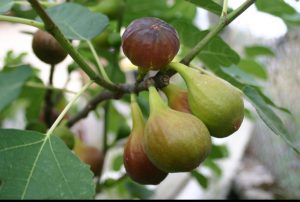Dr. Rashad M. Balal, *Dr. M. M. Khan, Dr. M. Afzal and *M. Adnan Shahid
University College of Agriculture, University of Sargodha, Sargodha.
*Institute of Horticultural Sciences, University of Agriculture 38040 Faisalabad.
 Citrus, a member of family Rutaceae refers to all edible and rootstock species and a few closely related genera. Citrus fruit are grown throughout the world and are known for their fine flavor and quality. The importance of citrus in agriculture and the world’s economy is demonstrated by its wide distribution and large-scale production. Citrus fruit ranks second after grapes in terms of area and production in the world. Citrus is grown in tropical and subtropical climate where suitable soil and sufficient moisture is available for sustained tree growth and development. Citrus is a prized fruit of Pakistan and hold number one position among all fruits both in area and production. Citrus fruits are the outstanding source of vitamin C along with appreciable amounts of vitamins A and B. They also contain calcium, phosphorus, iron, traces of copper, magnesium and manganese. It also contains 10-12 % carbohydrates in the form of dextrose and sucrose. The fruit of citrus is a special type of berry known as hesperidium. It is a good source of hesperidine, a vitamin like substance.
Citrus, a member of family Rutaceae refers to all edible and rootstock species and a few closely related genera. Citrus fruit are grown throughout the world and are known for their fine flavor and quality. The importance of citrus in agriculture and the world’s economy is demonstrated by its wide distribution and large-scale production. Citrus fruit ranks second after grapes in terms of area and production in the world. Citrus is grown in tropical and subtropical climate where suitable soil and sufficient moisture is available for sustained tree growth and development. Citrus is a prized fruit of Pakistan and hold number one position among all fruits both in area and production. Citrus fruits are the outstanding source of vitamin C along with appreciable amounts of vitamins A and B. They also contain calcium, phosphorus, iron, traces of copper, magnesium and manganese. It also contains 10-12 % carbohydrates in the form of dextrose and sucrose. The fruit of citrus is a special type of berry known as hesperidium. It is a good source of hesperidine, a vitamin like substance.
Among all, kinnow mandarin (Citrus reticulataBlanco) is highly admired and commercially cultivated for its dispensation quality, fresh utilization and aromatic flavor. Despite its excessive cultivation, kinnow cultivated area still has some problems such as slow growth and long juvenility, insects, pests, diseases, alternate bearing, pre and post harvest losses, large figure of seeds per fruit, short season of supply and short storage life etc. As its demand is increasing day by day inside and out side the country their export can be enhanced by producing disease free and exclusive kinnow. Substantial increase in area under citrus is reported every year but the increase in production is at a very slow rate. During 2006 citrus fruit export rose by 30.5% and reaches to 108,507 tons as that of 90,150 tons during the same period in preceding year but still it is far behind from other citrus producing countries like Spain, America, Japan, and Australia. Nutrients shortage in the soil of citrus orchards in Pakistan, is one of the major reasons for decline in yield and quality of fruit because citrus is a nutrients demanding crop and highly approachable to applied nutrients in the form of fertilizers. Improved growth with better fruit yield and quality can be obtained by application of proper composite fertilizers because any nutrient either lacking or in excess can lead to a decline in crop yield united with substandard fruit quality.
Potassium (K) ranks seventh in order of copiousness in the earths crust and an essential major nutrient element for plants and animals together with nitrogen and phosphorus. Total K+contents in soils range between 3000 and 100,000 kg ha-1in the upper 0.2 m of the soil profile. The availability of Potassium is governed by the equilibrium among its soluble, non-exchangeable, and fixed forms. Of these forms, soluble and exchangeable K+is readily available to plants whereas non-exchangeable K+is slowly available. It is known that when fertilizer K+is applied to a soil, some of its portion is adsorbed and becomes non-exchangeable, thus non-available for immediate uptake by plants. Due to low addition of K fertilizer and removal of straw from the fields, soil K+depletion has been going on at a faster rate. The nutrient balance sheet for Pakistan shows an annual deficit of 265,000 tones K2O. About 98% is bound in the mineral form, whereas 2% is in soil solution and exchangeable phases. Potassium has been reported as one of the most important element responsible for low yields in soils of Pakistan especially under intensive potato-maize cultivation system. Potassium deficiency symptoms including stunted growth, bronzed foliage, twisted leaves having scorching chlorotic pattern and brown leaf tip are very common in citrus orchards of Pakistan and proposed reason for this deficiency is calcareous nature of soil. Most of the fruit characteristics including vitamin C contents are correlated with sugar metabolism that can be improved by proper K nutrition management. Potassium is removed by citrus fruit more than any other nutrient element, and the large amounts of K+are reflected in the high K+content of citrus juice. Since shortage of macro and micronutrients especially potassium severely affects the fruit quality as well as final crop yield of citrus. So different levels of macronutrients (potassium, nitrogen and phosphorous) were applied in proper grouping to evaluate the suitable level where efficient yield production fixed with good quality fruits can be obtained. Potassium sulphate can also be used to benefit for citrus grown on saline soils, which happen in arid and semi-arid areas. Potassium nitrate also contains two nutrients, nitrogen as nitrate which is readily available to crops, and potassium. Both potassium sulphate and potassium nitrate are used in fertigation systems, where nutrients are added to, and applied with, the irrigation water. A number of fertilizer manufacturers produce specialty fertilizers in which the ratio of potassium to other plant nutrients is adjusted to meet the specific needs of citrus or the fertilizer has certain desirable physical features. In human body, potassium is involved in nerve function, muscle control an blood pressure. A diet low in K+and high in sodium may be one of the factors that lead to high blood pressure. Athletes require larger quantities of potassium-rich foods.







